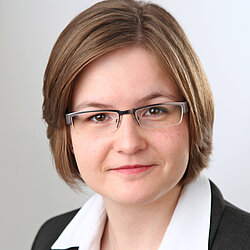How Will, How Must We Build in the Future?
Social processes of change also go hand in hand with new challenges for the building sector, infrastructure as well urbanisation processes. The opportunities and risks are multidimensional – which is why an in-depth, multi-perspective academic analysis of the topic and practical problem-solving strategies are needed.
- Addressing climate change: Energy efficiency & sustainability are crucial for construction measures
- A shortage of space due to urbanisation: Housing densification & adaptation of infrastructure is becoming necessary
- Technological change: Exploring and harnessing potential, evaluating and minimising risks
The Joint Academic Partnership’s primary goal is to address future issues in the area of building, infrastructure, and urbanisation and to develop solutions for the various challenges – based on scientific findings and with a practical focus!
Researchers in the interdisciplinary Joint Academic Partnership are especially devoted to exploring which strategies in particular are suitable for satisfying future space requirements and how to optimise raw material costs for building measures, infrastructure projects and urbanisation processes.
Furthermore, members of the Joint Academic Partnership pursue the goal of investigating the opportunities and risks inherent in technological innovations (for example digitalisation, the energy revolution, e-mobility), climate change (such as natural disasters) as well as demographic and cultural change (including an ageing population, urbanisation, migration movements) for the built environment and infrastructure and how we can meet the challenges by means of (landscape) architectural, urban and spatial planning and structural technology. The Partnership’s research projects are also dedicated to technology impact research, risk assessments and the associated social science research of measures.
Researchers at the Partnership also provide answers about what materials we will use and how we will build in future so as to meet energy efficiency and sustainability guidelines. Examples of solutions could be to optimise the recyclability of building materials or to minimise CO2 emissions in materials production.
Likewise, research projects at the Joint Academic Partnership address the issue of how building innovations can halt climate change or facilitate adaptations to climate change. The development of strategies and measures for flood prevention and protection against flooding are an example of research topics.
How to enhance the land efficiency of settlement and infrastructure is also a highly relevant research issue against the background of housing densification and increasing urbanisation. Increasing urbanisation is leading to an ever-greater loss of natural habitats. It is still unclear what impact this will have on society as a whole. This is also an issue that is being addressed by the Joint Academic Partnership.
And last but not least, the development of innovative approaches to planning and design, modelling, simulation, assessment, and optimisation of problem-solving strategies and measures, as well as to the management of planning and implementation processes represents a research field of the Joint Academic Partnership.
Our current Topics:
- Material and building research
- Energy efficiency and sustainability
- Urbanisation processes and the future of infrastructure
- Cross-cutting issues

Christina Wiemers
Koordinatorin BayWISS-Verbundkolleg Infrastruktur, Bauen und Urbanisierung
Universität der Bundeswehr München
Telephone: +49 896004 2475
infrastruktur-bauen-urbanisierung.vk@baywiss.de
